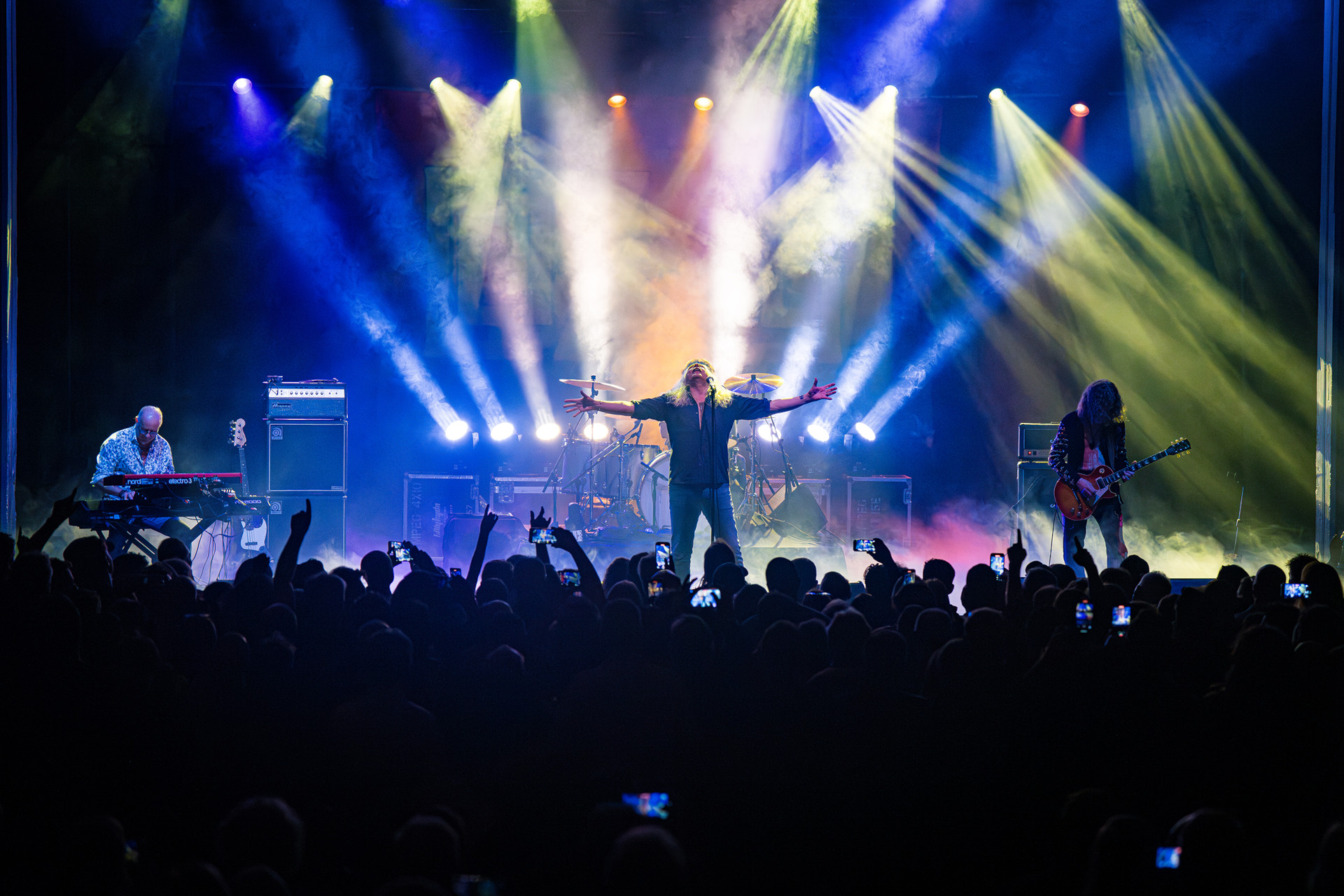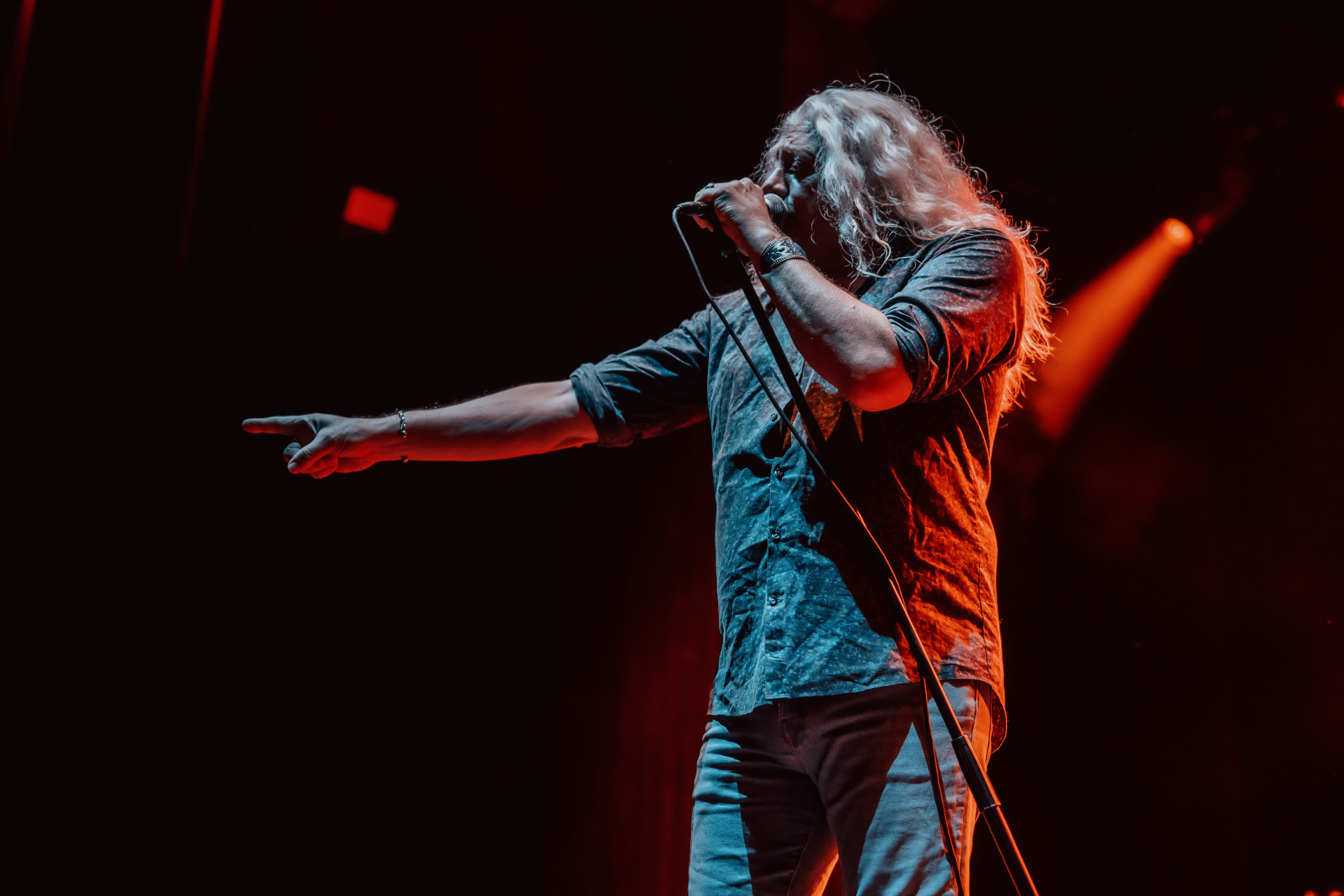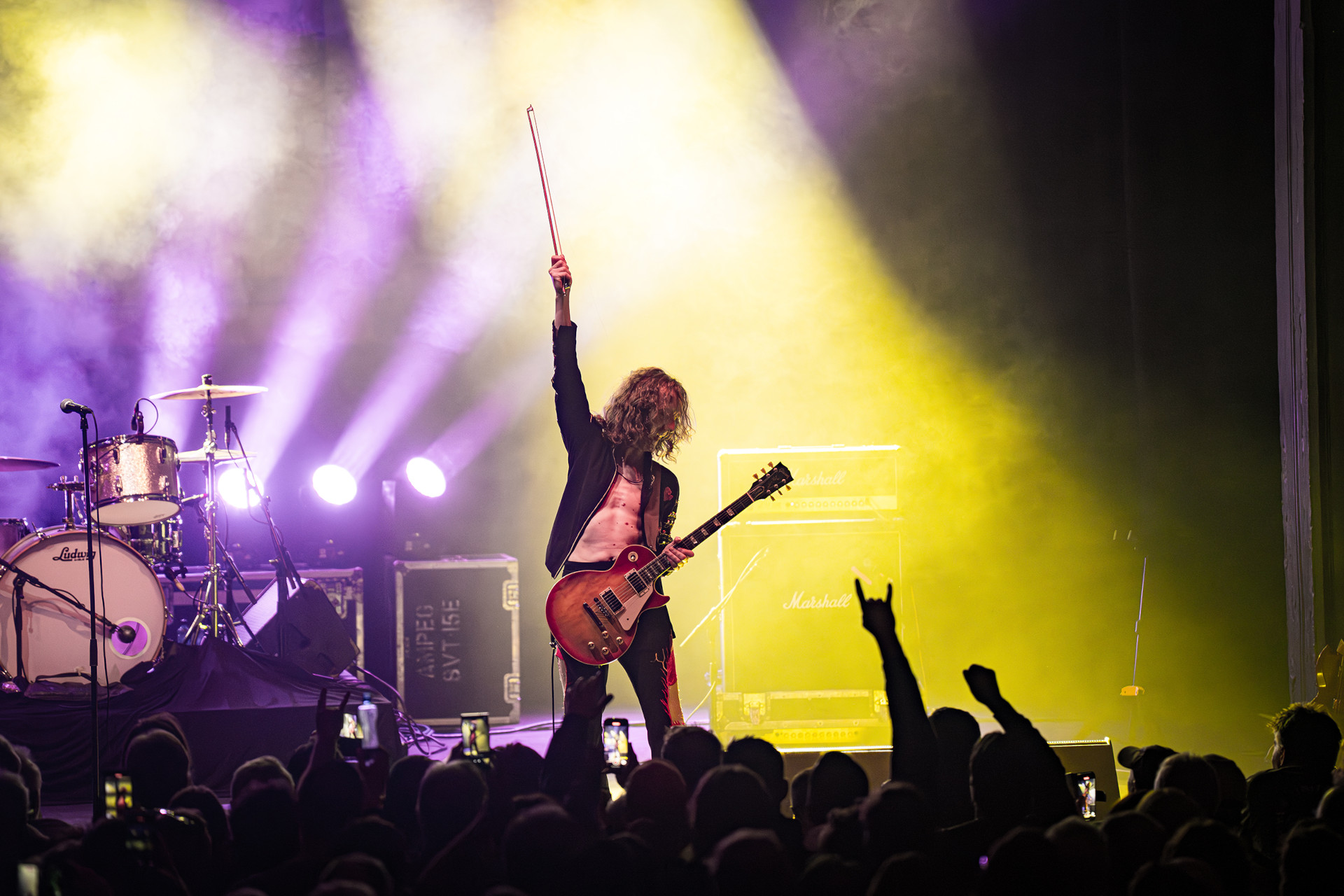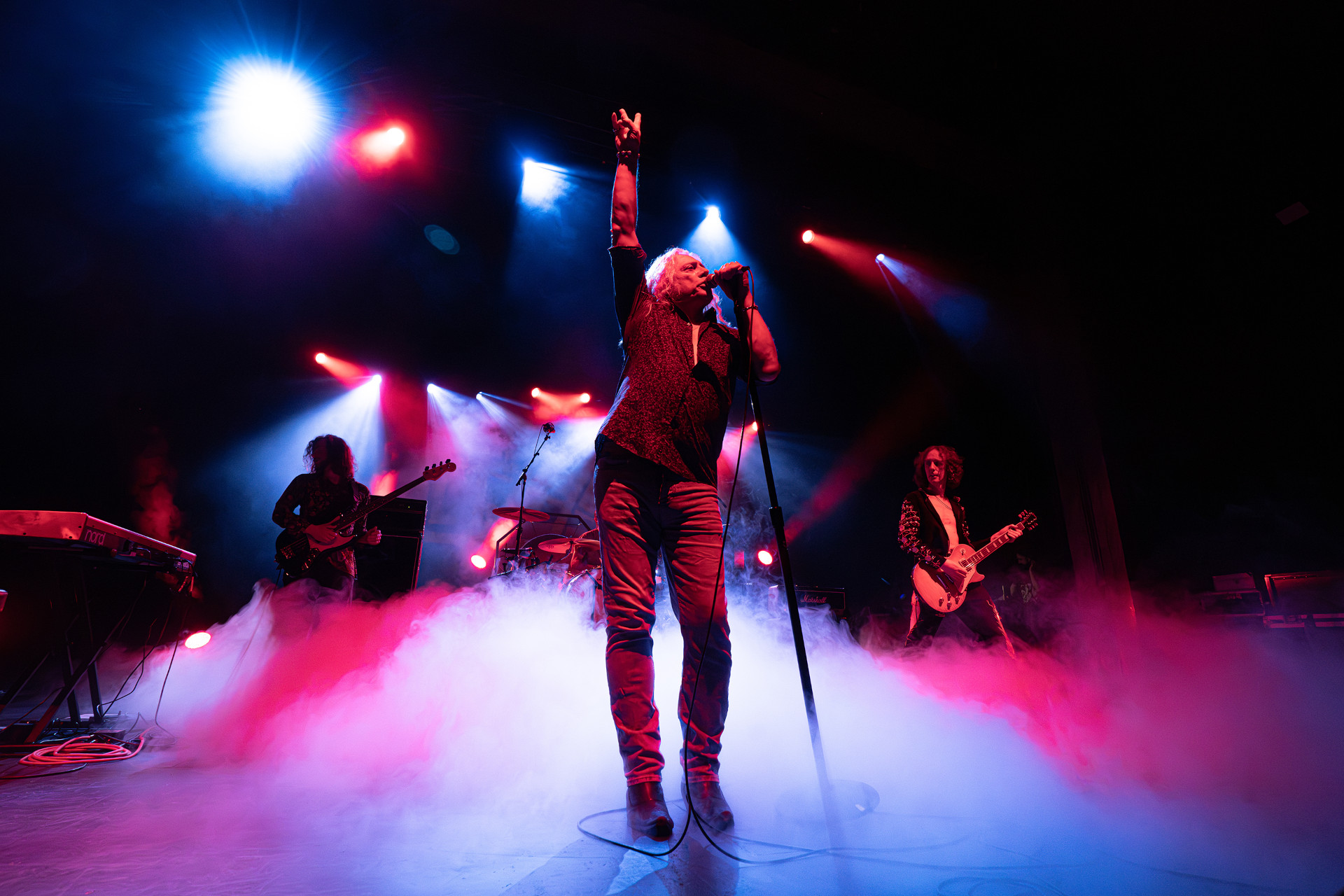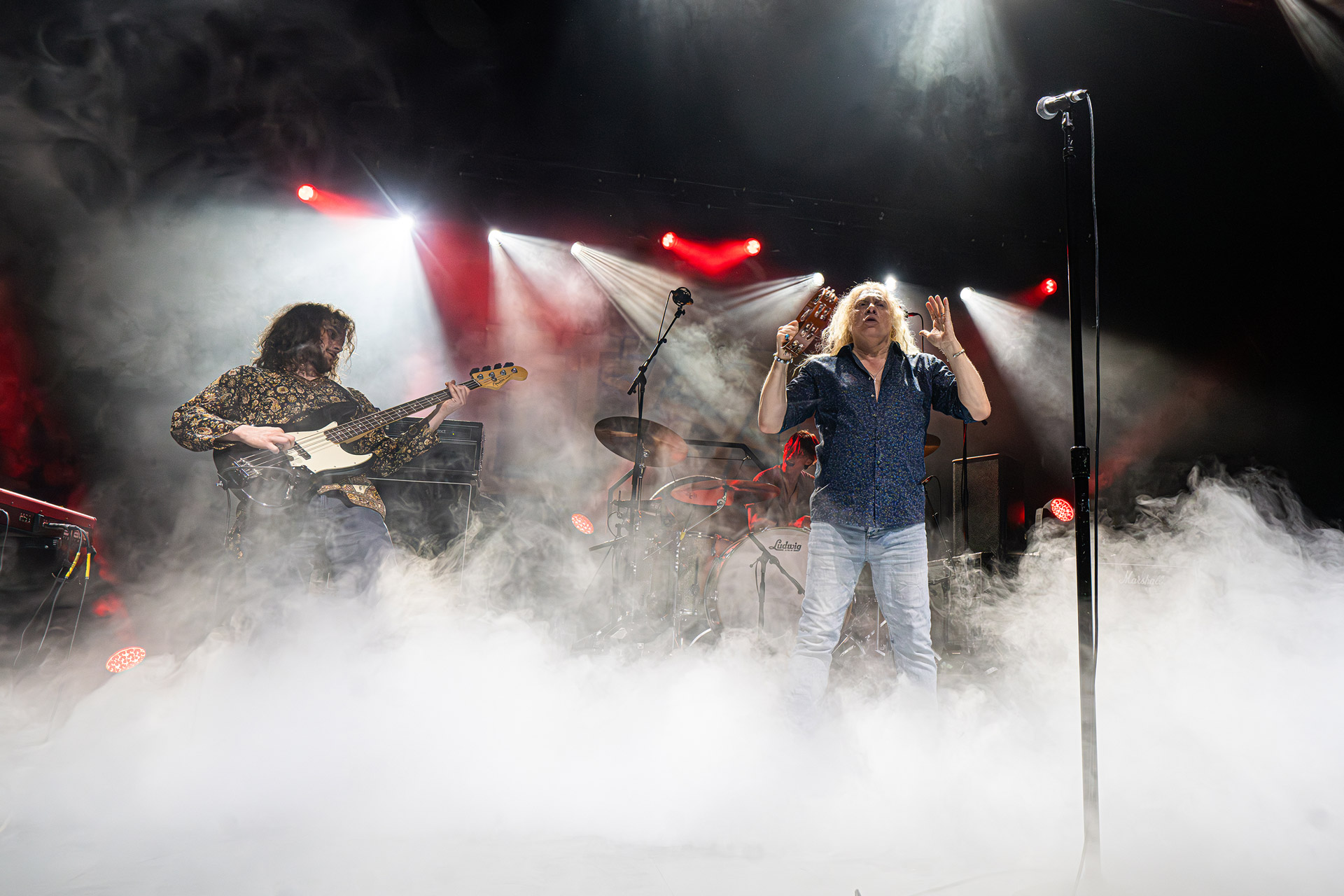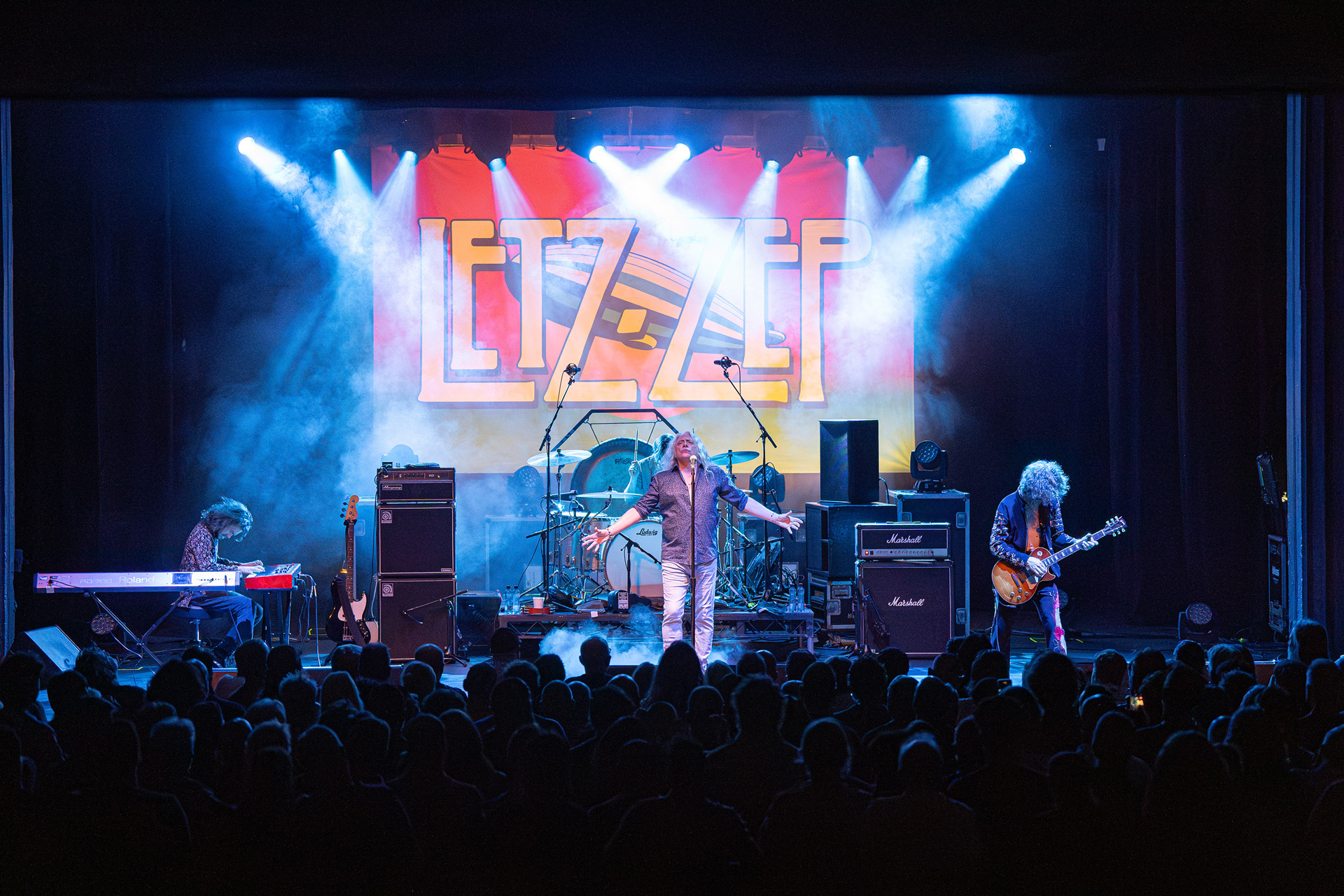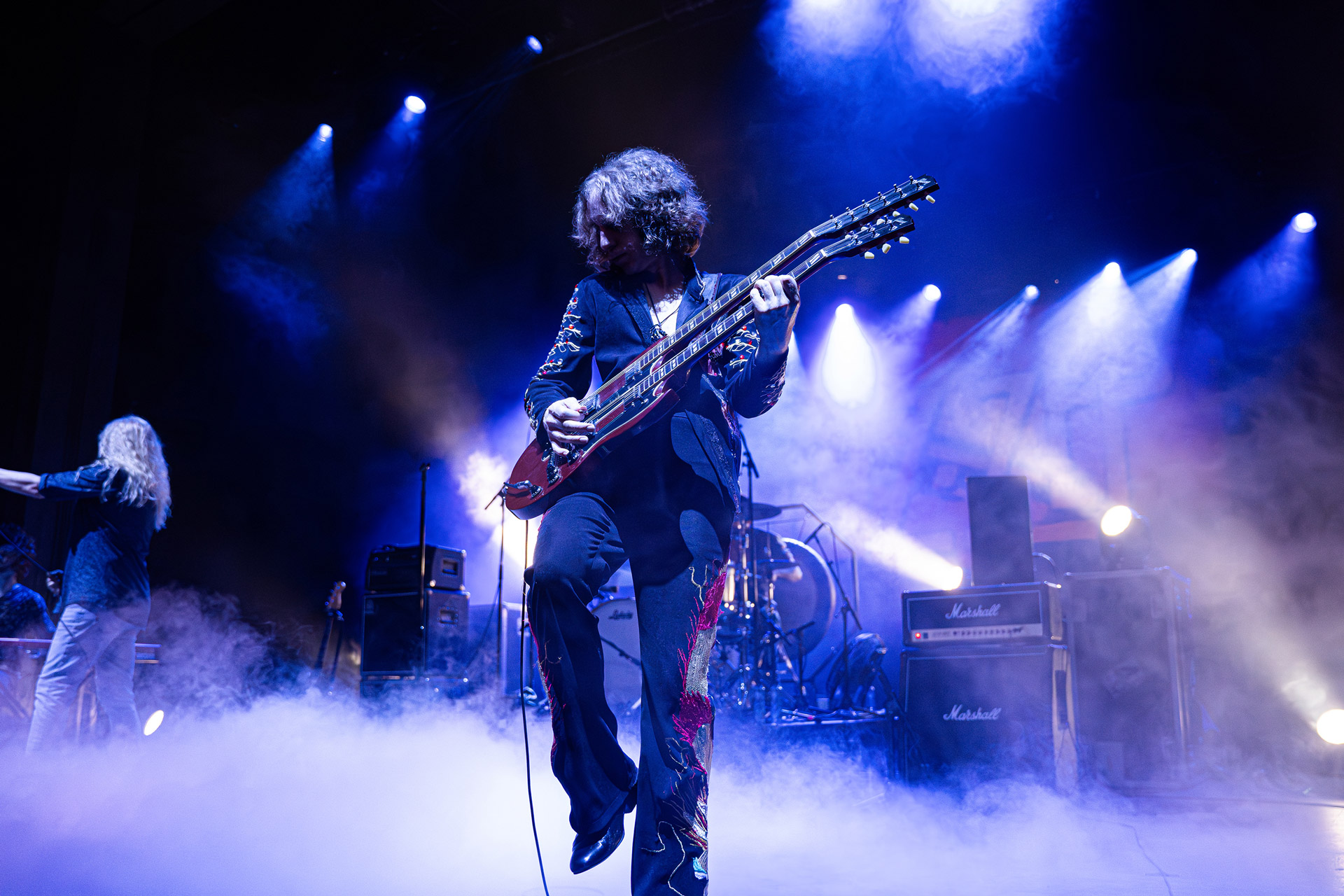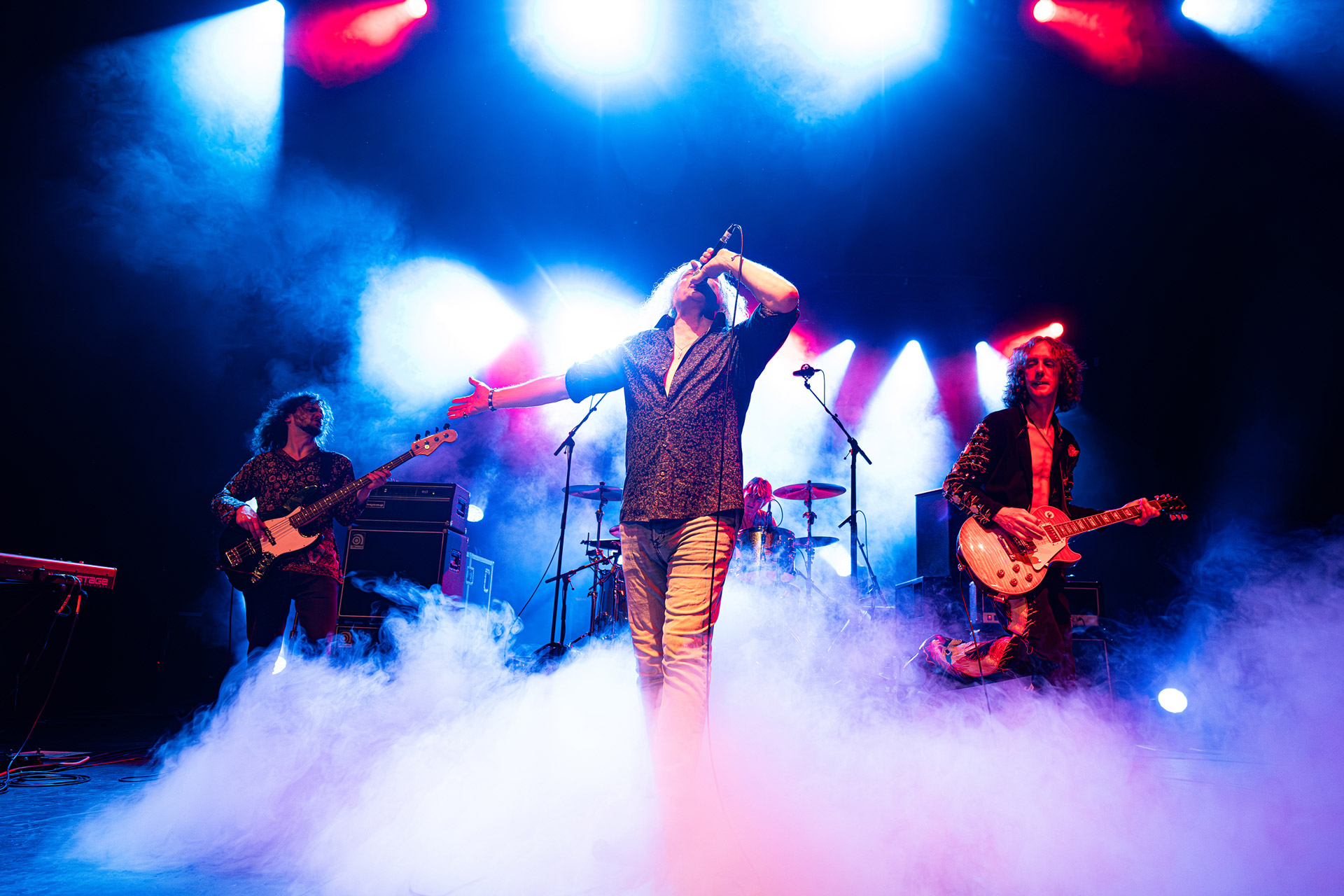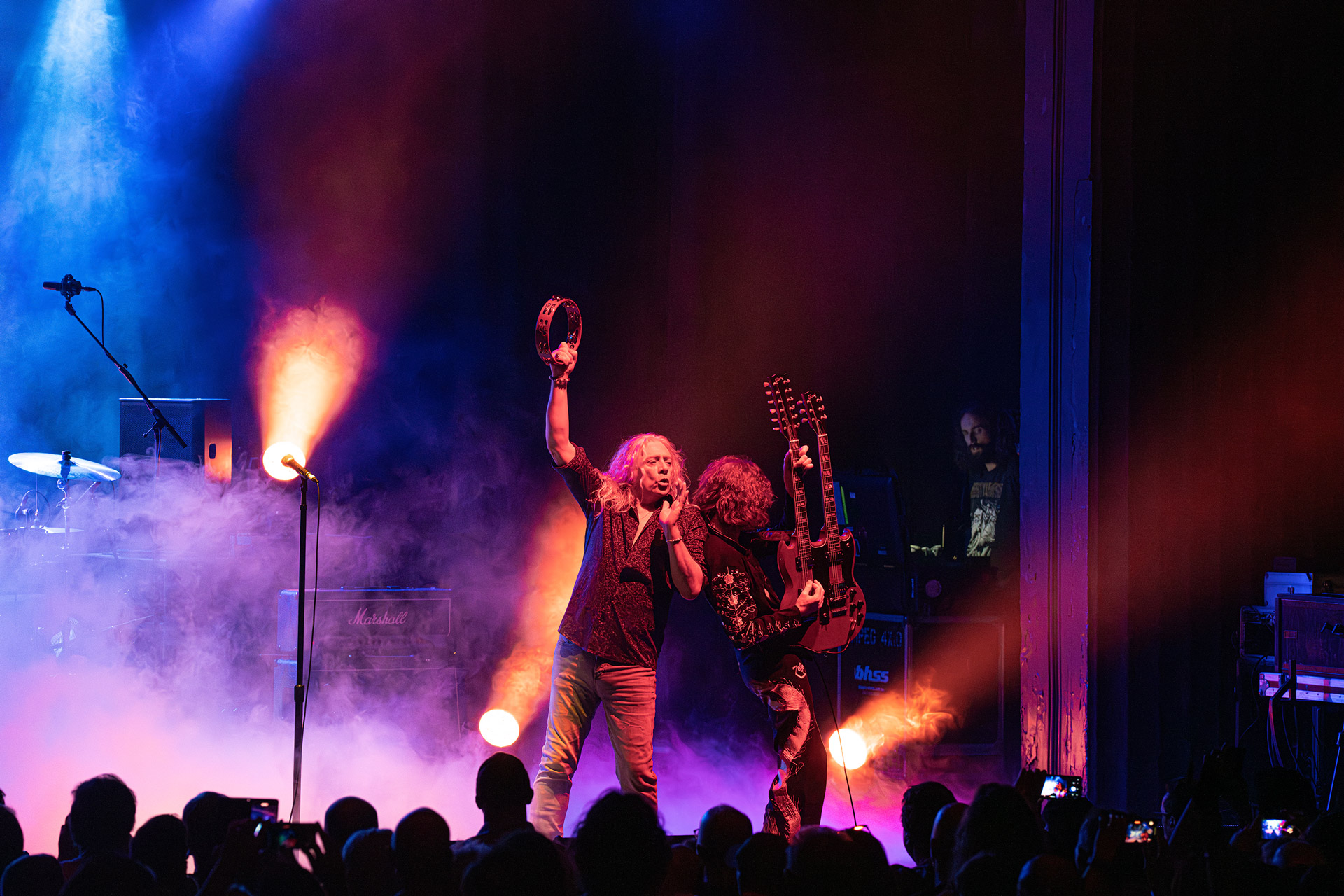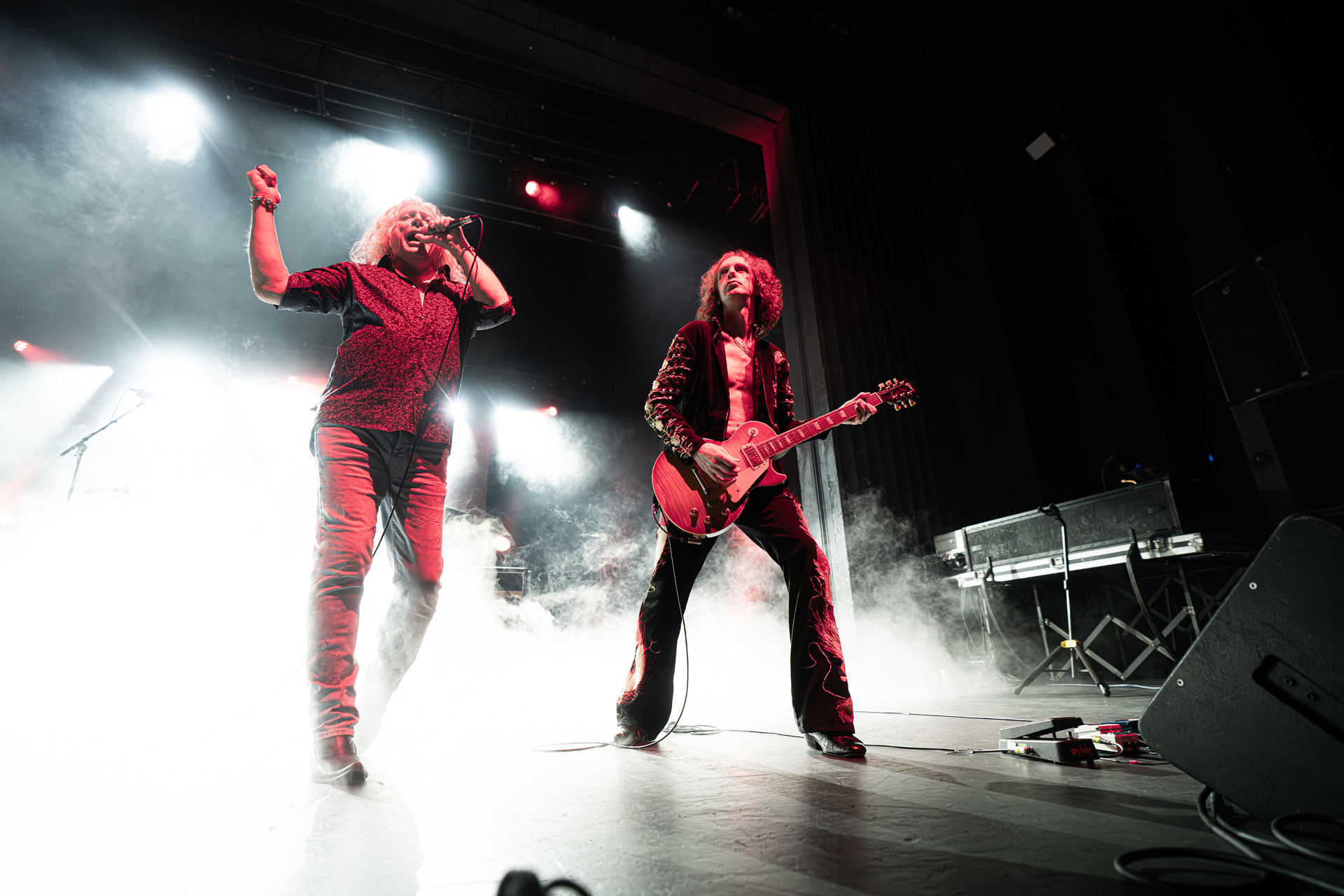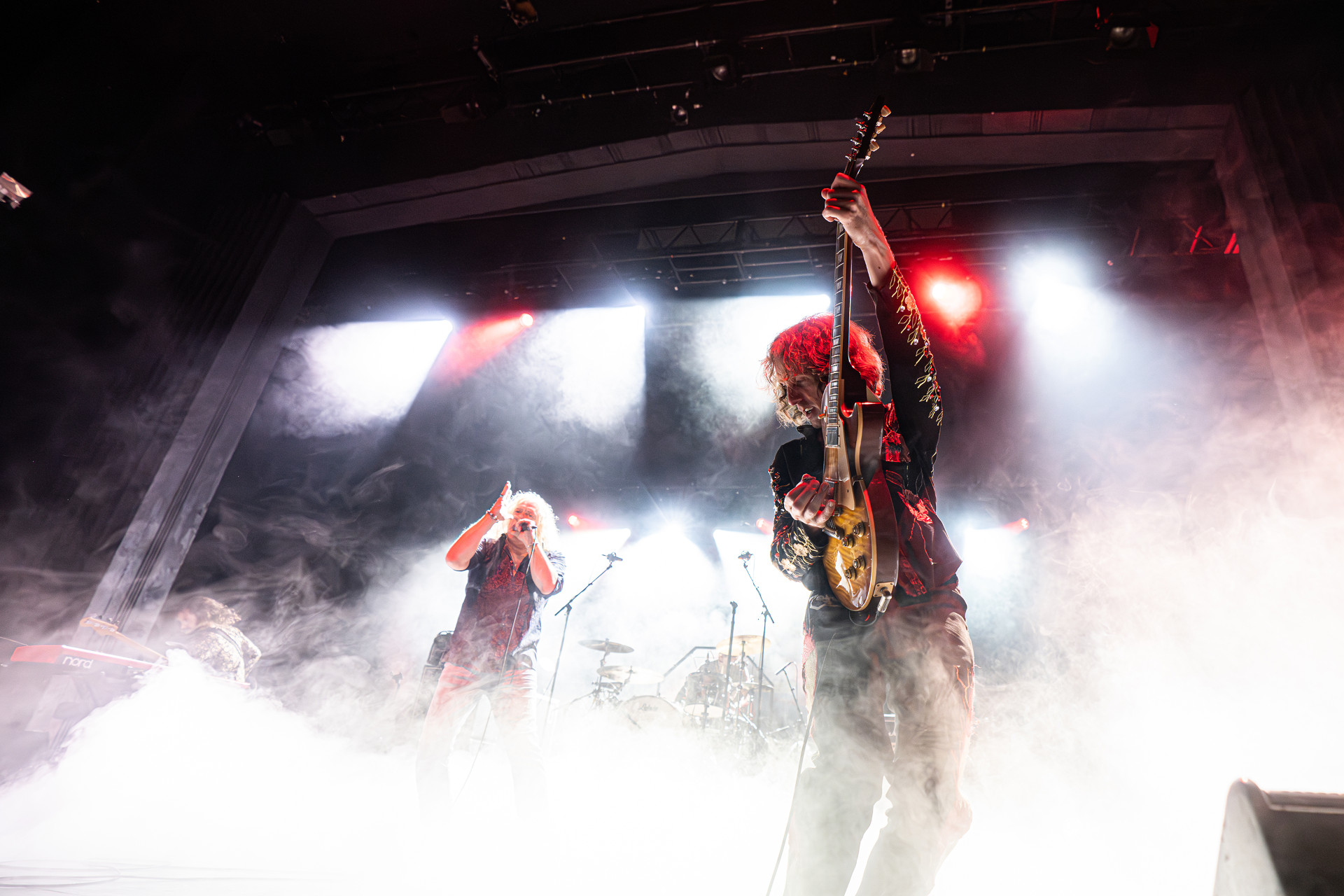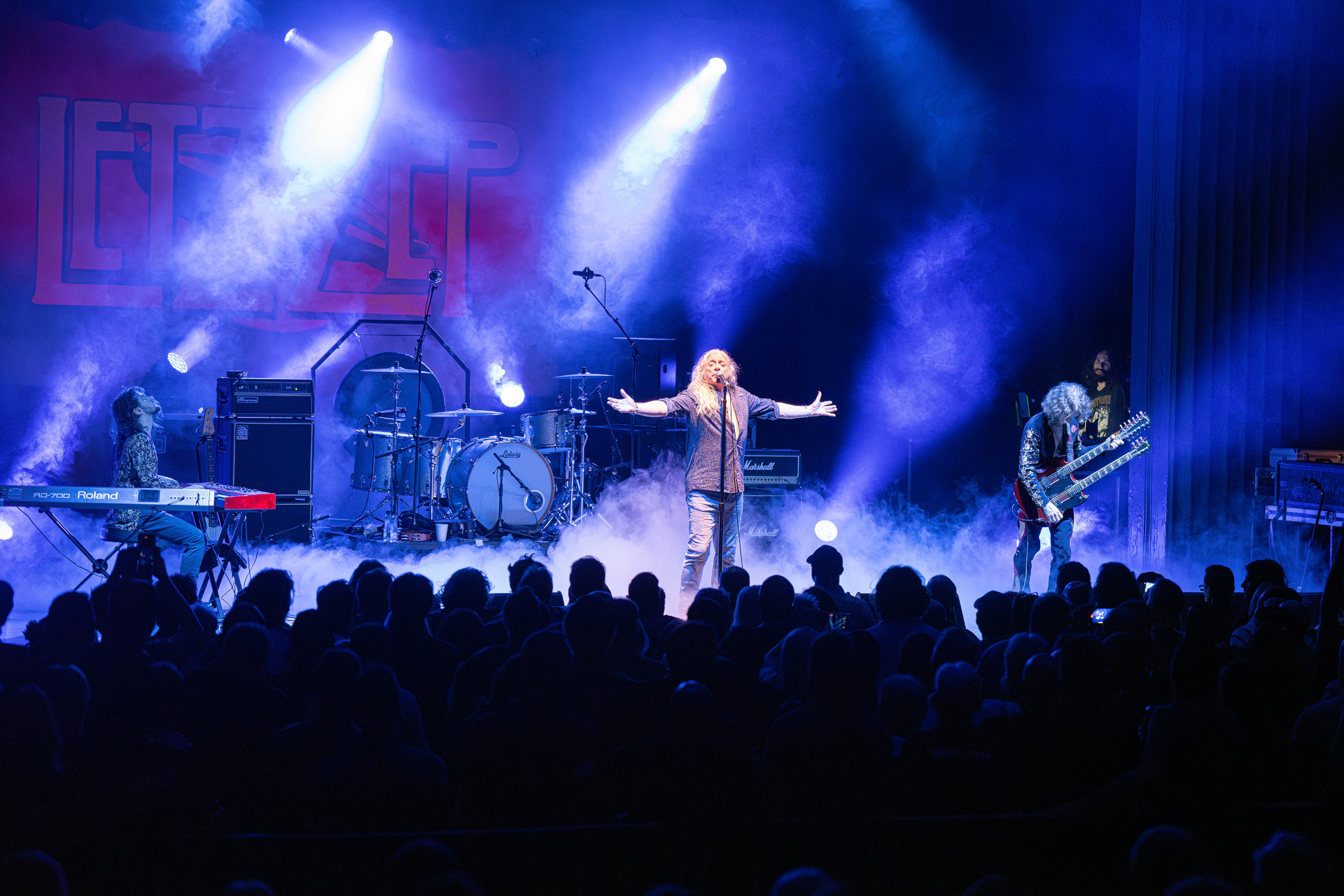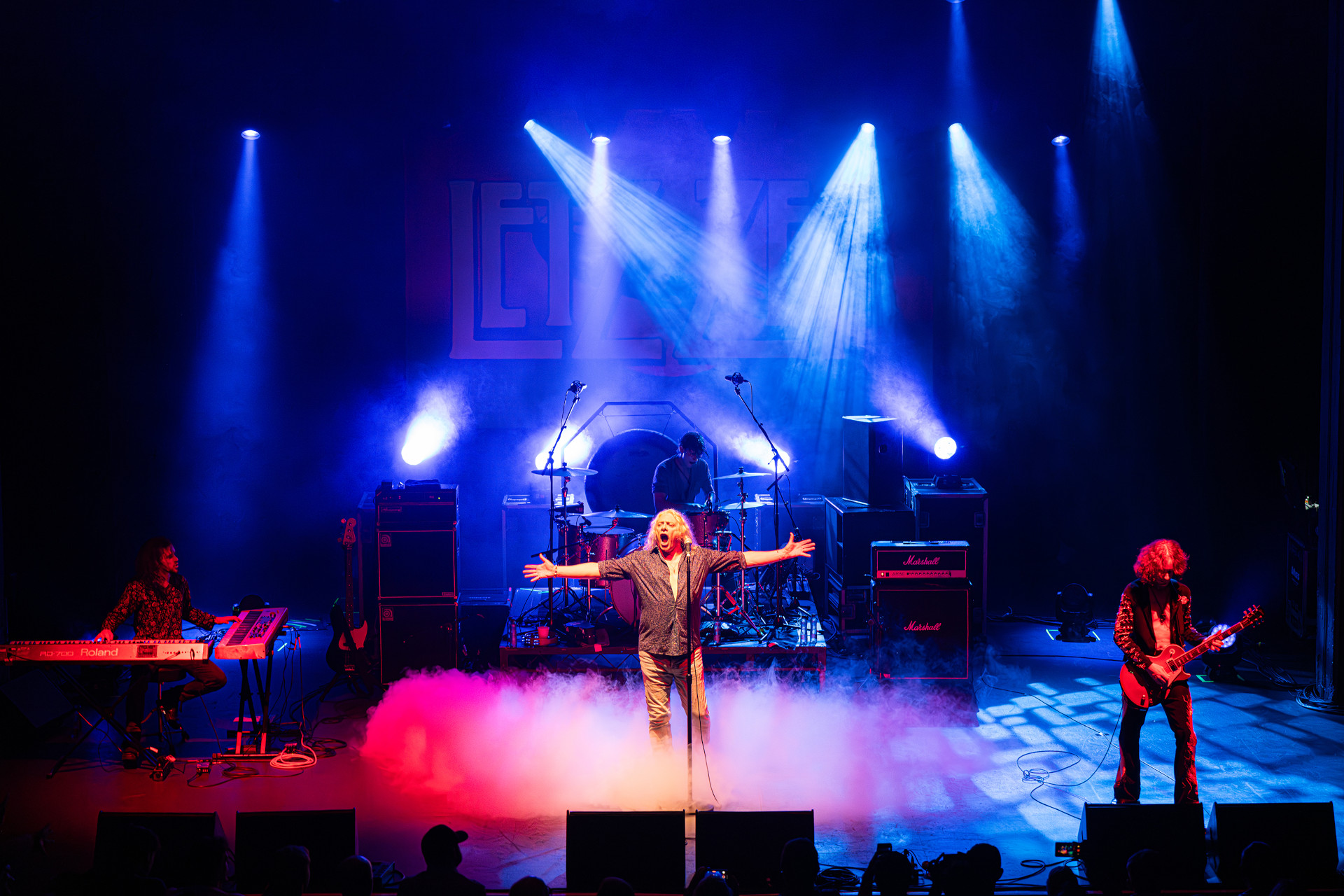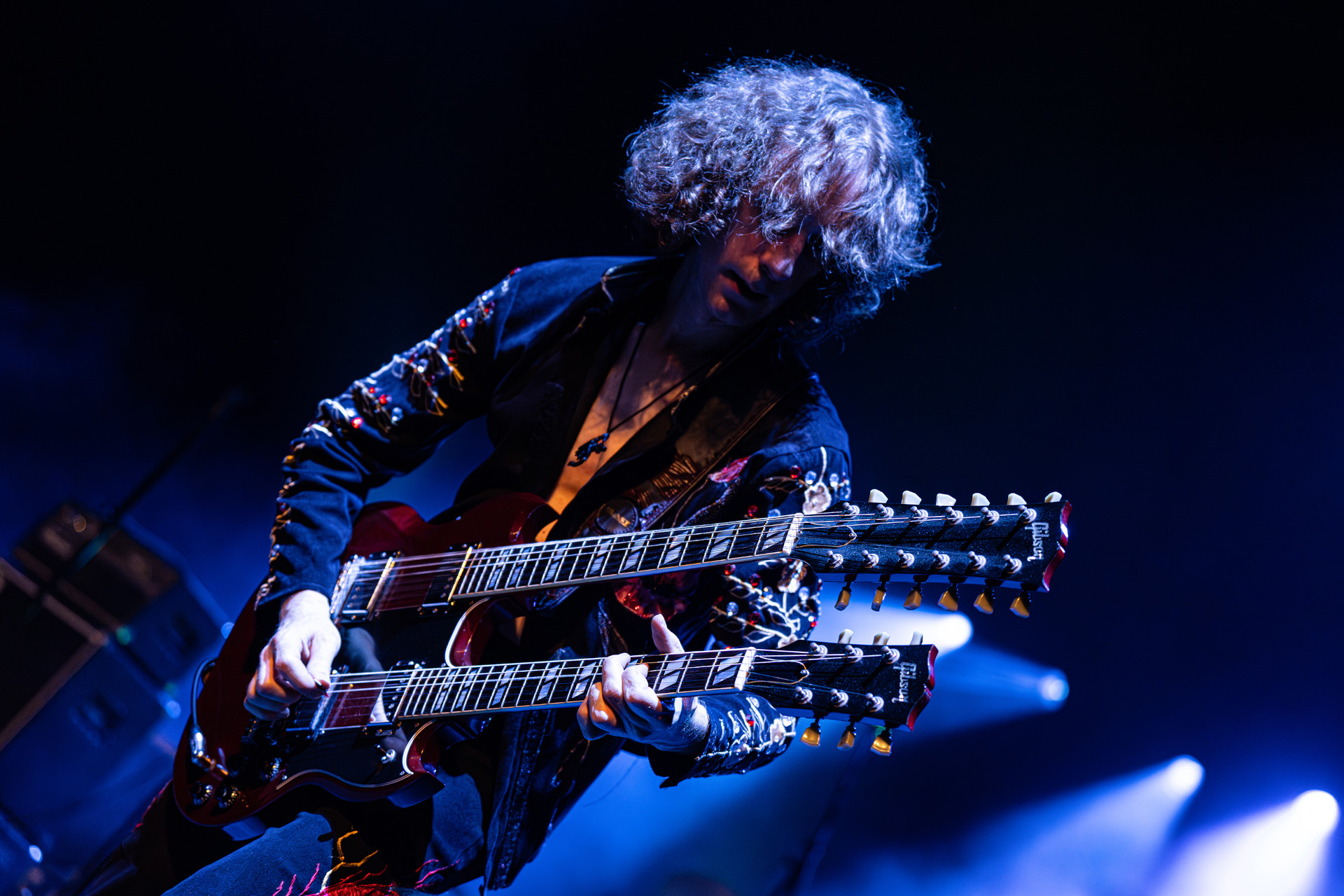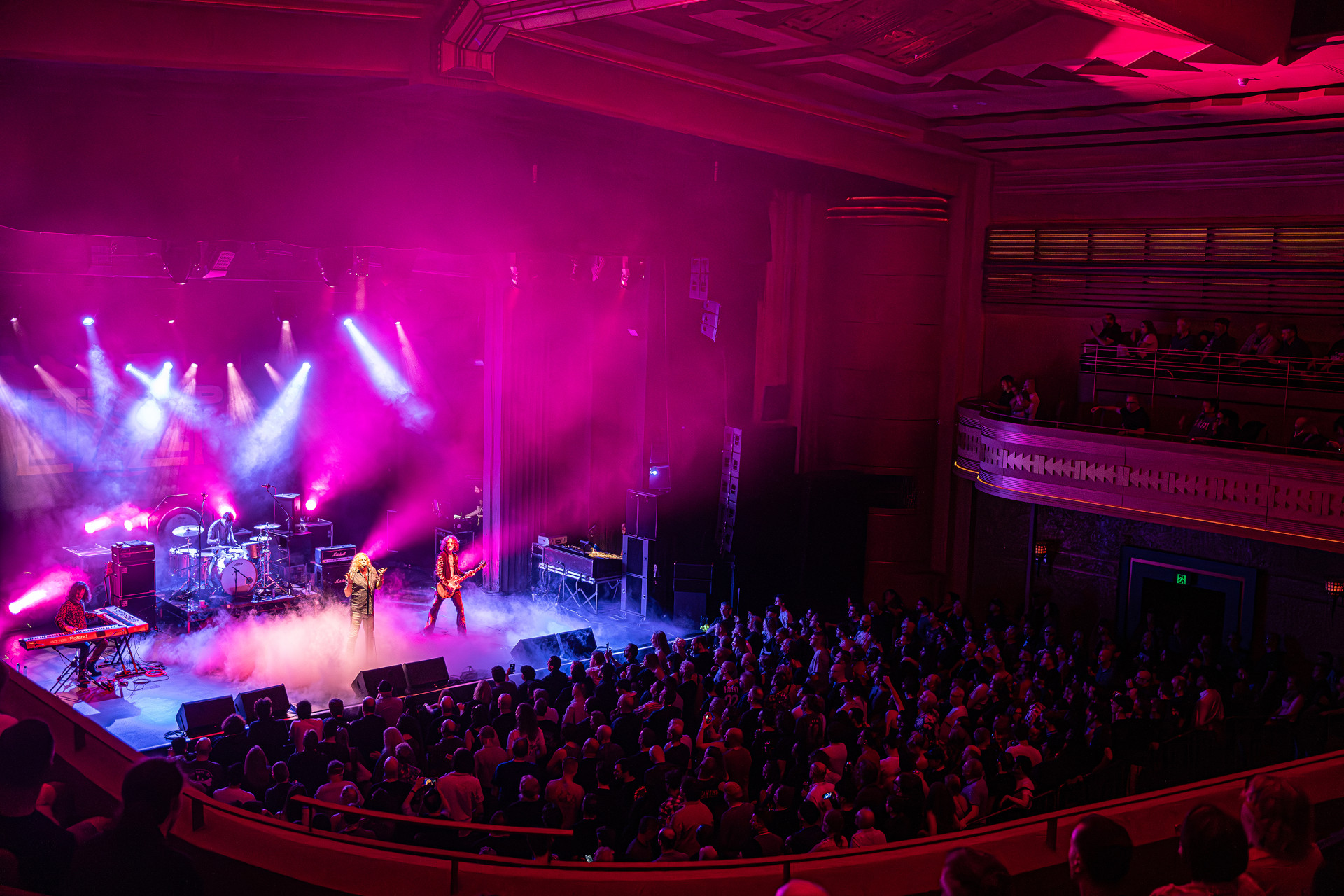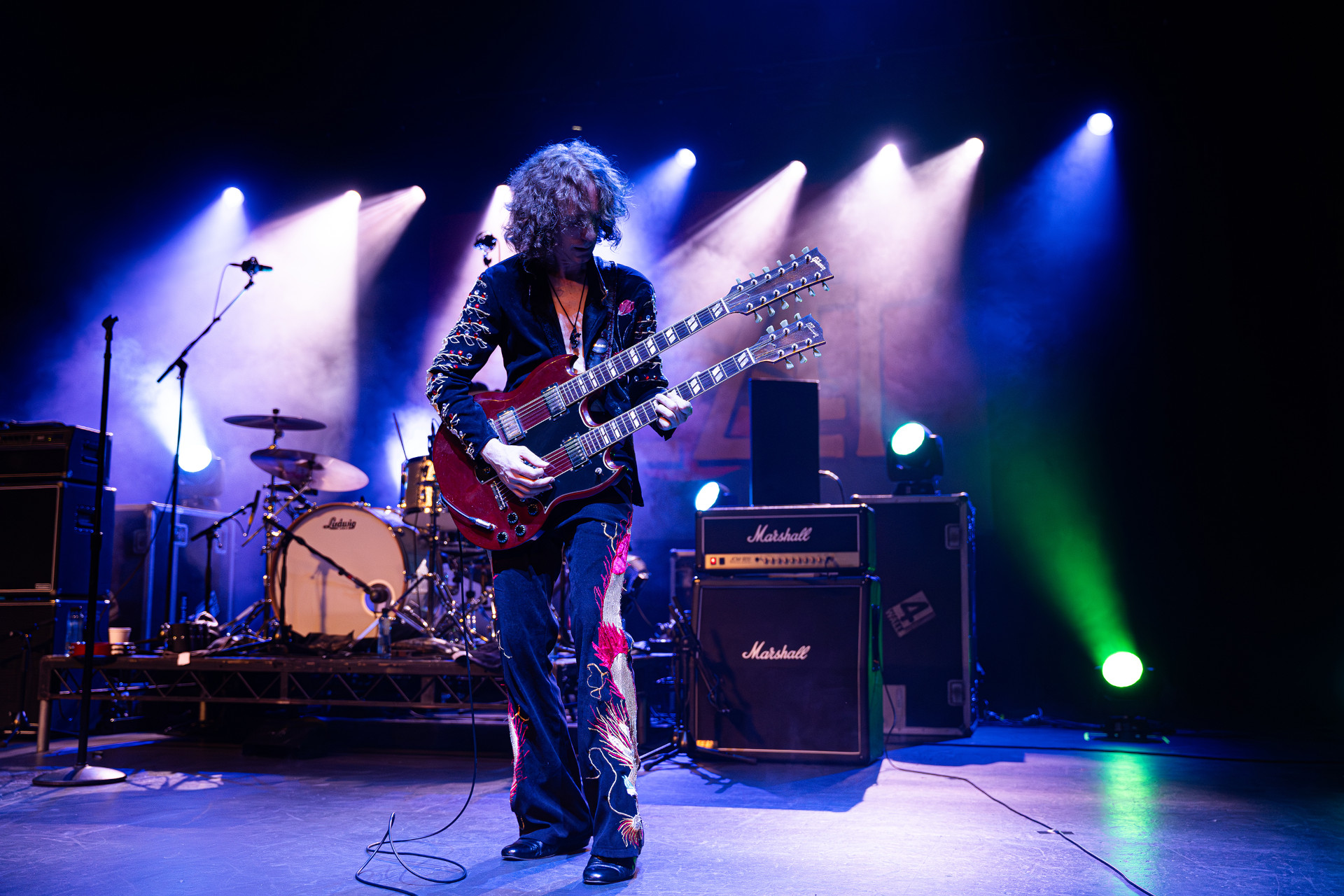Letz Zep
(Led Zeppelin Tribute) (UK)
Led Zeppelin Approved Tribute Band
LETZ ZEP have earned their international reputation as the World’s Best Tribute to the World’s Greatest Ever Rock Band, LED ZEPPELIN and “if you close your eyes, you would think it was Led Zep themselves”!
All the great music of LED ZEPPELIN, performed with integrity and style. Setlist includes Stairway to Heaven, Immigrant Song, Black Dog, Rock and Roll, Kashmir, Whole Lotta Love, Ramble On, Heartbreaker, Good Times Bad Times, Dazed and Confused + Loads More!
Both Jimmy Page and Robert Plant have attended LETZ ZEP shows. They were so impressed by LETZ ZEP, they invited them to perform at the official launch party of LED ZEPPELIN’s ‘Mothership’.
LETZ ZEP possess the considerable musical ability required to produce a completely convincing recreation of LED ZEPPELIN in their prime, complete with the “tight but loose” raw excitement that was the trademark of a Led Zeppelin concert
“I walked in, I saw me” (Robert Plant)
“Better than a LED ZEPPELIN Re-union” (Kerrang Magazine)
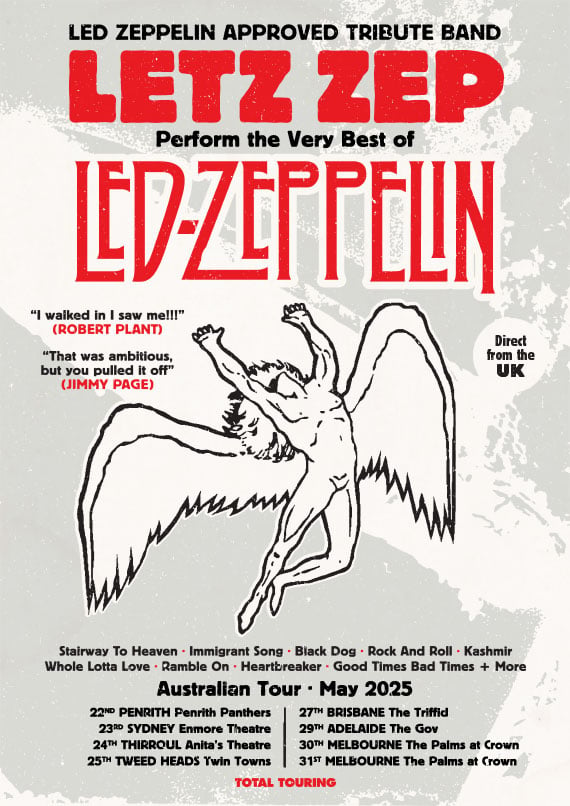
Led Zeppelin Bio
Kerrang Magazine hails LETZ ZEP as “Better than a LED ZEPPELIN Re-union” and Led Zeppelin’s record label, Warner Music, dubs them “Europe’s best tribute to LED ZEPPELIN.” LETZ ZEP has solidified its global renown as the ultimate homage to the world’s greatest rock band, LED ZEPPELIN.
Honouring the musical legacy of LED ZEPPELIN, their setlist includes iconic tracks like Stairway to Heaven, Black Dog, Immigrant Song, Whole Lotta Love, Rock and Roll, Kashmir, Ramble On, Heartbreaker, Good Times Bad Times, Dazed and Confused, and many more!
Notably, both Jimmy Page and Robert Plant have graced LETZ ZEP‘s performances. Their admiration led to an invitation for LETZ ZEP to perform at the official launch party of LED ZEPPELIN‘s ‘Mothership’ album.
LETZ ZEP possesses the exceptional musical prowess necessary to deliver a genuinely authentic recreation of LED ZEPPELIN during their prime, capturing the electrifying “tight but loose” essence that characterized a Led Zeppelin concert. “If you close your eyes, you would think it was Led Zep themselves”!
—
Led Zeppelin
Led Zeppelin, often hailed as the epitome of rock ‘n roll greatness, had its origins back in 1966 when Jimmy Page, a London-based session guitarist, took over as the bassist for The Yardbirds, replacing Paul Samwell-Smith. Notably, The Yardbirds also featured guitar legend Jeff Beck. By 1968, The Yardbirds were on the verge of disbanding, and Page and Beck aimed to create a new supergroup, initially considering adding The Who’s rhythm section with Keith Moon and John Entwistle. Though this plan never materialized, Beck, Page, and Moon did collaborate on a single track named “Beck’s Bolero,” featuring future Led Zeppelin bassist, John Paul Jones.
After The Yardbirds broke up following a gig in Bedfordshire, the band still had commitments for several Scandinavian performances. Jimmy Page and Yardbirds bassist Chris Dreja agreed to finish the tour under the moniker “The New Yardbirds.” Page initially attempted to recruit lead singer Terry Reid, who declined but recommended Robert Plant, the singer for the Band of Joy. Plant accepted the offer and brought Band of Joy’s drummer, John Bonham. When Chris Dreja withdrew from the tour, Jimmy Page brought in John Paul Jones.
The New Yardbirds, now comprising Jimmy Page, Robert Plant, John Bonham, and John Paul Jones, held their first jam session in a London record store’s basement. Their debut collaboration was a rendition of the blues track “Train Kept A-Rollin’,” famously performed by Johnny Burnette. Before embarking on the Scandinavian tour, the group also participated in a recording session for P.J. Proby’s album “Three Week Hero,” during which they recorded a track titled “Jim’s Blues.” This was the first studio recording to feature all four members of the future Led Zeppelin, with Plant playing harmonica instead of singing.
Following the Scandinavian tour, The New Yardbirds began working on their debut album. However, the band received a cease and desist letter from the original Yardbirds bassist, Chris Dreja, stating that “The New Yardbirds” name was only approved for the remaining Yardbirds tour dates. The origin of the name Led Zeppelin remains somewhat unclear, but it’s rumored to date back to the initial Page, Beck, Moon, and Entwistle project, where someone suggested that the project would fail like a lead balloon. The “A” in “Lead” was dropped at the suggestion of manager Peter Grant to avoid mispronunciation as “leed,” and “balloon” was replaced with “Zeppelin,” a more robust term for airships that had been used before World War II.
As the legend goes, Led Zeppelin signed with Atlantic in what was reported as the most significant debut recording deal for a new band at the time. This deal granted the band complete creative and business autonomy, leading them to form the company Superhype to manage publishing rights. The Superhype name appeared on the initial pressing of the first Led Zeppelin album but was later replaced by Warner Brothers on subsequent releases. “Superhype” wouldn’t reappear on a Led Zeppelin release until their untitled fourth album three years later.
Though their first UK tour was still billed as “The New Yardbirds,” Led Zeppelin performed their first show under that name on October 25th at the University of Surrey in Battersea. Their eponymous debut album was released in the US in January 1969, peaking at number 10 on the Billboard Chart. It was released in the UK in March, where it peaked at number 6. According to Stephen Erlewine at allmusic.com, Led Zeppelin‘s debut album took “… the heavy distorted electric blues of Jimi Hendrix, Jeff Beck, and Cream to an extreme,” creating “a majestic, powerful brand of guitar rock constructed around simple, memorable riffs and lumbering rhythms.” Even today, Led Zeppelin‘s debut album is considered a rock ‘n roll landmark and an early influence on the burgeoning heavy metal genre.
In their first year as Led Zeppelin, the band toured extensively in both the USA and the UK before releasing their second album, Led Zeppelin II. Recorded while on tour in America at various studios, the album reached number one on the charts in both the UK and the USA. Heavier, bluesier, and more direct than their first record, Led Zeppelin II is still seen as a quintessential rock album and one of the greatest of all time.
The opening track of Led Zeppelin II, “Whole Lotta Love,” would become one of Led Zeppelin‘s signature songs and was performed at every concert from June 1969 onward. It was even re-recorded by The Collective Consciousness Society, becoming the theme song for the BBC TV show Top of the Pops, ensuring its recognition among music fans in Britain.
The song “Heartbreaker” from Led Zeppelin II proved to be highly influential. Eddie Van Halen credits it as the inspiration behind his “tapping technique,” which inspired countless guitarists. Guitar icon Steve Vai describes it as “defiant, bold, and edgier than hell” and calls it “the definitive rock guitar solo.” Even Nirvana covered the song at their first-ever show in March 1987.
In 1970, Page and Plant secluded themselves in a remote cottage in Wales to write their third album, Led Zeppelin III. What emerged from these sessions was far from what anyone might have expected. Influenced by folk and Celtic music, “Led Zeppelin III” surprised fans, divided critics, yet still achieved chart-topping success on both sides of the Atlantic.
The opening song of Led Zeppelin III, “Immigrant Song,” became one of the band’s most popular tracks. Inspired by Viking invasions of England, the song was released as a single in the US and became a top 20 hit. Lester Bangs described it in Rolling Stone as having “bulldozer rhythms” and praised Plant’s “double-tracked wordless vocal crossings echoing behind the main vocal like some cannibal chorus wailing in the infernal light of a savage fertility rite.” The song became well known in Japan as the entrance theme music for legendary pro-wrestler Bruiser Brody.
As Led Zeppelin continued to ascend in global popularity, their shows grew more extravagant. The band members adopted flamboyant clothing, incorporated complex light shows with mirror balls and lasers into their stage performances. The band began travelling in their own private jet, nicknamed “The Starship.” Tales of extravagant and raucous behaviour began to circulate, with stories of entire hotel floors being rented for private parties and wild exploits. One such story involved Jon Bonham riding a motorcycle through a rented floor of The Continental Hyatt House Hotel in Los Angeles.
In 1971, Led Zeppelin released their fourth album, deviating from their numeric tradition. The album was released untitled and is now commonly referred to as Led Zeppelin IV or Untitled IV, due to the four symbols featured on the record sleeve, often called “Zoso” or “Four Symbols.” Each of the four symbols is said to represent a member of the band.
Led Zeppelin IV would become the band’s best-selling record, with over 37 million copies sold worldwide, solidifying its place among the best-selling records of all time. As of 2006, the album had sold 23 million copies in the United States alone. The album includes the infamous “Stairway to Heaven“, which, although never released as a single, became the most requested and played song on American radio in the 1970s.”Stairway to Heaven” was voted number three by VH1 on its list of the 100 Greatest Rock Songs in 2000. In 2004, it ranked 31st on Rolling Stone’s list of the 500 Greatest Songs of All Time.
Although somewhat overshadowed by the anthem status of “Stairway to Heaven“, Led Zeppelin IV also featured Led Zeppelin‘s signature songs like “Black Dog“, a top 10 single in Australia, and “Rock ‘n Roll“, which featured The Rolling Stones’ pianist, Ian Stewart. In 1972, rock critic Robert Christgau described “Rock ‘n Roll” as “simply the most dynamic hard-rock song.” From 1972 to 1975, “Rock ‘n Roll” opened every Led Zeppelin concert, and for their final tour, it served as an encore. It was also the last song Led Zeppelin played at their reunion show at the O2 Arena in London in 2007.
Led Zeppelin‘s fifth album, Houses of the Holy, broke with the numbering convention and was released in March 1973. The album featured a controversial cover designed by the graphic design group Hipgnosis. The record demonstrated greater musical experimentation, incorporating mellotron, orchestration, and synthesizers. Houses of the Holy included signature Led Zeppelin songs like “The Song Remains the Same” and “No Quarter“. From 1973 onward, “No Quarter” became a centrepiece of every Zeppelin concert, played at nearly every show until their final tour. The album’s North American tour shattered attendance records, many of which had been previously set by The Beatles. The band’s performances at Madison Square Garden were filmed for the 1976 movie “The Song Remains The Same“.
After the successful Houses of the Holy tour, Led Zeppelin established their own record label in 1974, Swan Song, named after an unreleased song. The label’s logo, a mythical winged human figure often interpreted as either Apollo or Icarus, became synonymous with the group and has appeared on merchandise for decades.
In 1975, the band released their double album, Physical Graffiti. Like their previous albums, it achieved commercial success but as a result of it’s popularity, all preceding Led Zeppelin recordings re-entered the Billboard 200 charts. In May 1975, Led Zeppelin performed five sold-out nights at Earls Court Arena in London, which was the largest arena in Britain at the time. “Physical Graffiti” featured the epic “Kashmir”. John Paul Jones believed the song showcased all the elements of Led Zeppelin’s sound. Led Zeppelin archivist Dave Lewis regarded it as “arguably the most progressive and original track that Led Zeppelin ever recorded.”
Led Zeppelin‘s seventh album, Presence, marked a turbulent period for the band and could be seen as the beginning of the end. Prior to recording, Robert Plant was involved in a serious car accident, causing the band to cancel all touring commitments for the release. Consequently, the ten-minute opening track “Achilles Last Stand” was one of the few songs from the album performed live. Although the album achieved platinum status, it received mixed reviews from fans and critics and was somewhat overshadowed by the release of the film “The Song Remains the Same” and its soundtrack. It began to appear that the band’s excesses were catching up with them.
In 1977, Led Zeppelin embarked on their first tour in several years. Although it initially set new attendance records, the tour was marked by a series of offstage issues and incidents, culminating tragically with Plant receiving news that his five-year-old son had passed away from a stomach virus. The remainder of the tour was cancelled and Led Zeppelin‘s final U.S. performance took place on July 24th at the Oakland Coliseum in California.
In 1978, Led Zeppelin regrouped in Stockholm, Sweden, to record what would become their final album as an active band, In Through the Out Door. The album largely reflected the turmoil within the band, as Robert Plant was still grieving his son’s death, Jimmy Page was battling heroin addiction, and Jon Bonham was struggling with alcoholism that would eventually claim his life two years later. In the midst of this chaos, the band grew weary of the music industry’s demands. In Through The Out Door divided critics, with some appreciating its forward-thinking synthesizer influences, while others saw it as out of touch with the punk movement in England. Despite mixed responses, Led Zeppelin headlined two performances at the Knebworth Music Festival in August 1979, playing to over 104,000 people on the first night.
In 1980, a show in Nuremberg, Germany, came to an abrupt end after three songs when Jon Bonham collapsed on stage. The collapse was attributed to drug and alcohol abuse, although the band claimed he had simply overeaten. On September 25th, Jon Bonham passed away during rehearsals for an upcoming U.S. tour. The subsequent inquest revealed that he had consumed around 40 shots of vodka, leading to vomiting and choking.
On December 4th, 1980, a statement to the press declared, “We wish it to be known that the loss of our dear friend, and the deep sense of undivided harmony felt by ourselves and our manager, have led us to decide that we could not continue as we were.” Thus, officially marking the end of the career of one of the world’s greatest rock and roll bands.
Led Zeppelin blazed a trail for hard rock and heavy metal, and their influence continues to resonate decades after they disbanded.
